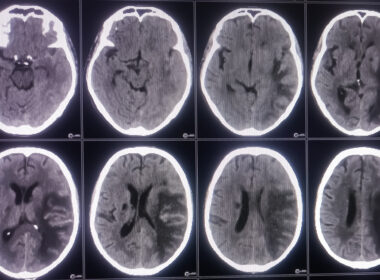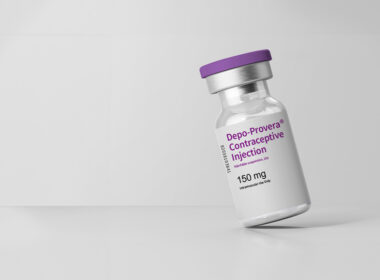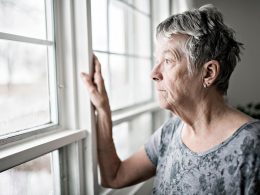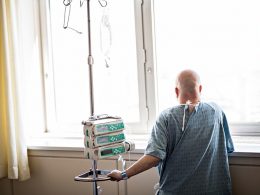The United States has a long history of nursing homes. These facilities have long enjoyed a lot of patronages – from the old almshouses credited to the first English settlers to the modern facilities of today.
However, in recent years, the number of residents in these nursing facilities has been increasing. In fact, it is estimated that older adults have a 70% likelihood of needing long term care facilities at some point in their lives.
In 2020, out of a general population of 329.5 million people, data shows that over 1,290,000 older persons, from 65 years old, were living in nursing homes. The average length of stay in a nursing home has also increased over time.
This increase in the number of people living in nursing homes has led to an increase in resident deaths due to medical conditions related to aging, injuries suffered while living in these long term care facilities, and most recently, health complications from COVID 19.
According to recent data from the Centers for Medicare and Medicaid Services (CMS), about 154,118 people have died in nursing homes since the start of the COVID 19 pandemic.
While it is true that these deaths can be directly traced to the COVID 19 pandemic, it is still a frightening number and can be indicative of the kind of care these nursing facilities deliver, which can lead to wrongful death. In fact, a 2020 AP article information revealed that for every 2 COVID 19 deaths in a nursing home, there is 1 non-COVID 19-related death unaccounted for.
In this article, we will be looking at the wrongful death situation in nursing homes, the number of people that die in nursing home facilities, and what you can do about it if you or someone you know is a victim of wrongful death in a nursing home facility.
Wrongful Death in a Nursing Home – What Is It?
Wrongful death is a legal term that refers to a death that is caused by someone else’s negligence or wrongdoing. In nursing homes, this is usually caused by medical negligence, intentional acts of another resident, or the negligent or intentional acts of a nursing home employee.
Nursing homes are supposed to provide the highest standards of care to the residents who live there. They are not supposed to be unsafe places for the residents to live. However, there are thousands of nursing homes across the country that are unsafe. Some of these nursing homes are poorly maintained. The residents live in overcrowded conditions that are very dangerous to their health, especially in these days of the COVID 19 situation.
If a nursing home resident is injured or dies in a nursing home, a nursing home administrator or employee may be held legally responsible for that death. This can be a situation in which a nursing home employee was negligent or a situation in which a nursing home employee intentionally harmed a nursing home resident.
If you have a loved one who has died in a nursing home, it is important to contact an experienced nursing home injury lawyer as soon as possible. The sooner you contact an attorney, the better your chances are of recovering compensation for the loss of your loved one.
Nursing Home Deaths: What Causes Them?
A nursing home resident’s death is a tragic event that can happen to anyone at any age. In fact, data by the Journal of the American Medical Directors Association indicates that there is a 35% mortality risk of a nursing home resident will die within the first year of residency.
The same data source also found that the risk of death for nursing home residents within the first 100 days is 16.3%.
The causes of nursing homes death are often complex and difficult to pinpoint. While many nursing home deaths are caused by old age, quite a number of them are wrongful deaths caused by a combination of different factors.
Some of the common causes of nursing home wrongful deaths are:
Injuries or Abuse
Nursing home residents are at high risk of abuse and neglect. Abuse can take many forms, including physical, sexual, and verbal abuse.
In some cases, this abuse occurs because a resident has advanced dementia or other cognitive impairments that make it difficult for them to understand what is happening to them. In other cases, residents may be subjected to verbal or physical abuse simply because they are elderly and unable to defend themselves.
2020 data revealed that there were more than 15,000 cases of nursing home abuse lodged with nursing home ombudsmen. When abuse like this goes on for too long, it can lead to physical and psychological injuries.
When nursing home residents suffer from injuries that go untreated for an extended period of time, they may become more susceptible to infection or other health problems as well. This can lead to additional complications and an increased risk of death in nursing homes. Actually, data suggests that elders who were abused in any form are 300% more likely to die than those who were not.
Violence Between Residents
When people are in nursing homes, it may be common for them to be aggressive toward each other. Data from an international journal disclosed that up to 20 percent of nursing home residents experience physical violence from another resident, at least once every month.
Unfortunately, these violent events are not facility reported, and it is not until the death of an elderly resident that the nursing staff are forced to reveal what happened.
Bedsores or Sepsis
Bedsores occur when an open wound or a pressure sore is left on a person’s skin. It is often the result of prolonged hospitalization or a long-term stay in a nursing home. Bed sores can cause severe infections which can eventually lead to sepsis.
If nursing homes fail to properly clean their residents and provide them with adequate care, they can become more susceptible to developing bedsores. If they also fail to properly monitor their residents who have bedsores, this can lead to a more severe infection, which can be fatal. As a matter of fact, a federal government data collection source revealed that about 60,000 deaths are caused by complications from bedsores.
Errors in Medication Administration
Nursing home residents are often medicated for a variety of illnesses. They can also be prescribed medication for pain relief and to improve their mental health. The medication is administered to the residents by nurses, doctors, or other caretakers. Unfortunately, sometimes, mistakes do happen.
Improper training can lead to errors in the administration of medication. Some medications need to be administered in a specific manner to avoid overdose or toxicity. This is not always done in nursing homes. This can result in an error that leads to an overdose or poisoning.
Some nursing homes also fail to keep accurate data of the medication administered to residents. This makes it difficult to know what medication they have been prescribed. When this is combined with improper training, it can lead to an error that can be fatal.
Slip and Falls
According to reliable data. slip and fall accidents are another major cause of death in nursing homes. One study estimates that slips and falls account for 20% of fatalities among people in nursing homes who are 65 years and older.
Falls can occur due to clutter on the floor, as well as an uneven or slippery surface. They can also occur if a patient is not properly seated in his or her wheelchair or bed.
Nursing homes are also filled with stairs, hallways, and other areas where people can slip or fall. These facilities may also have missing handrails on staircases or railings that are not secure enough to prevent a fall if someone slips or trips over them.
Patients who are unable to get up on their own may be unable to prevent these falls due to poor mobility skills, advanced dementia, or other medical conditions that prevent them from being able to move around safely. These injuries can require long-term care by a doctor or hospital emergency room staff member. In some cases, it can be fatal.
Neglect
Another common cause of wrongful deaths in nursing homes is neglect. This type of case arises when an elderly person’s needs go unmet for too long or become ignored altogether.
A nursing home resident may have stopped eating for days or weeks at a time and then suddenly pass away from malnutrition or dehydration because staff did not notice their decline until it was too late to act on it.
Nursing homes must take patients’ safety seriously in order to avoid lawsuits resulting from neglectful acts by employees.
COVID 19
The COVID 19 pandemic has had a big impact on many aspects of life, including healthcare.
Data from an open access article distributed in November 2020 by the Center for Medicare and Medicaid Services (CMS) revealed that out of the 256,597 deaths from COVID 19 all over the country, 72,642 COVID 19 deaths were recorded among nursing home residents.
This situation is more rampant in homes where facility ownership is in the hands of for-profit organizations.
Of course, these data sources may be incorrect because the federal government required reporting on COVID 19 was optional before May 2020, so some numbers may have fallen through the cracks.
A more recent facility level data by freopp.org shows that nursing homes & assisted living facilities account for 38% of COVID 19 deaths in the USA.
Most nursing homes have a high proportion of residents who are elderly and who have underlying medical conditions. In the United States, the most common underlying medical conditions are hypertension, diabetes, heart disease, respiratory disease, low body mass index, and depression.
The risk of COVID 19 deaths is higher among these residents with these issues. Unfortunately, not many facilities, especially those that fall under private equity ownership, put proper protocols in place to provide protection.
While COVID 19 is known to spread via exposure to the virus in the air, there are data that show that nursing home surfaces and objects near the beds of patients can serve as COVID 19 reservoirs.
Data from a study by the American Geriatrics Society discovered that in the room of 90% of COVID 19 patients, there was at least one surface, including the television and call buttons, where coronavirus was discovered after many days. If these homes had put proper measures in place, it will at least, to an extent, limit the spread of COVID 19 among residents in the facility.
A poorly managed nursing home can cause wrongful COVID 19 deaths. Crowded spaces, improper congregate care settings, confined bed spaces, and uncertain vaccination status are some of the reasons why COVID 19 spread in nursing homes.
Seeing as older patients with medical issues are at high risk, it is no wonder that COVID 19 deaths are rampant in places where these kinds of conditions exist.
The Mortality Rates in Nursing Homes Every Year
As already established, the mortality rate of nursing home residents is increasing all over the country.
According to data from the Kaiser Family Foundation, there are more than 15,300 certified nursing homes and over 1,290,000 nursing home residents in the United States. Chances are more facilities will likely open to meet the demand for long-term care. Unfortunately, some of these residents die every year, a number of them victims of wrongful deaths.
But how many Americans die in nursing homes every year?
It’s hard to determine the total deaths with any certainty because of poor data availability for nursing home deaths. What is known for sure is that, according to one data source, about 1800 residents die from a slip and fall accident in nursing homes every year.
However, studies have been done on this topic in different states around the country.
Data from a previous study in the Journal of Post-Acute and Long-Term Care Medicine (JAMDA) revealed that the number of deaths in nursing homes in the Medicare and Medicaid services between 2003 and 2007 was 2,992,261.
Data from a more recent national study released by the Center for Disease Control & Prevention (CDC) revealed that nursing home and long term care facilities’ mortality rates hit 26.8% of total residents in 2018.
Since 2020, a good number of nursing home fatalities can be blamed on the COVID 19 crisis. According to healthcare research data, more than 201,000 people died as a result of COVID 19-related complications in nursing facilities. Inclusion criteria in this study covered race, ethnicity, and age. In Rhode Island alone, the number was 1,780.
Having said that, it is important to point out that there is still 40,000 excess mortality unaccounted for in nursing homes. This is in addition to the COVID 19 data released each year all over the country.
Examples of Nursing Home Wrongful Deaths
The majority of wrongful deaths in skilled nursing facilities are brought on by the facility’s and its employees’ negligence/ carelessness, however, there are also cases where a patient dies as a result of intentional abuse.
Some wrongful death claims are also brought because the medical facility administered the incorrect prescription, care, or diagnosis, which was the direct cause of the victim’s death.
Here, we examine a number of wrongful death lawsuits and death settlements involving nursing homes. These examples illustrate some of the more common causes of nursing home abuse and neglect.
Holder v. Beverly Enterprises Texas, Inc.
This case involved an 83-year-old woman named Ruth Waites who was in the care of Borger Nursing Center. Ms. Waites had severe dehydration while in the nursing home and had to be hospitalized. She was later released back to the facility but had to be readmitted to the hospital after getting bed sores while staying at the nursing home.
A severe infection brought on by the bedsores led to her death.
Ms. Waites’ estate filed a lawsuit against the proprietors of Borger Nursing Center. They alleged that Ms. Waites’ hospitalization was caused by nursing home neglect, which was caused by low staffing levels.
Ms. Waites’ estate also sued for fraud, claiming that the Borger nursing home willfully hid the issue of the staff shortage at their facility. The wrongful death action won $83 million in total compensation for Ms. Waites’ estate.
Small vs. Park View Nursing Home, California
Mr. Small was a resident in Park View Nursing Home who had a history of water retention and CHF. In addition, he had dementia and underwent dialysis to treat kidney disease. One day, he was taken from the nursing home to the hospital for a routine checkup.
He was later returned back to Park View nursing home via non-emergency transport after the hospital gave their approval that he was fine. However, the Park View personnel failed to adequately evaluate or check in Mr. Small upon his return from the hospital, and never knew he was missing for 8 days.
During the eight days that Ms. Small was roaming around outside, his health took a dangerous turn.
Mr. Small had pneumonia and an extensive infection when he was found. His dialysis shunt was infected, and he had not taken his prescribed medication all through the 8 days out of doors. In the end, he died as a result of sepsis complications.
During the trial, Mr. Small’s family spoke about how much he struggled in the final days of his life owing to a lack of medicine and dialysis. Family members gave particularly emotional evidence about how horrible Mr. Small’s final days were.
The jury rendered a decision of $2,000,000 in damages in favor of the Small family.
Georgia Ann Bailey Smith v. Senior Living Properties
Georgia Ann Bailey Smith, the legitimate successor to Dud Grover Bailey’s estate, brought a wrongful death claim against Senior Living Properties. Dud Grover Bailey was a resident of a nursing facility provided by Senior Living Properties. Bailey experienced repeated strokes, iron deficiency anemia, skin deterioration, and urinary tract infections before passing away at the age of 90.
Smith claimed that the difficulties that led to Bailey’s death were caused by negligence at the Senior Living Properties nursing home facility. Smith alleged that the nursing home did not follow its own care guidelines, had poor staffing levels, and did not promptly inform Bailey’s doctor when he was experiencing health difficulties. Senior Living Properties reached an agreement with Smith for $13.5 million.
Suing a Nursing Home for Wrongful Death
If you believe that a nursing home has caused your loved one’s death, you may be able to pursue a wrongful death claim. While this type of lawsuit is usually filed against the skilled nursing facility that provided care to the deceased, it’s possible to pursue a wrongful death claim against another party for wrongful death.
Wrongful Death Lawsuits
Wrongful death lawsuits allow a deceased person’s loved ones to recover for the loss they suffered as a result of the death. The loss includes the value of the services the deceased would have provided for his or her family, as well as the grief and pain that have resulted from the death.
If a nursing home has been negligent in providing the deceased’s care, or if a staff’s error contributed to the death, the nursing home may be responsible for compensating the family for the deceased’s lost income and the emotional distress that the family has suffered.
If the death is due to a third party’s negligence, such as the care provided by a physician or medical treatment, the third party may also be responsible for compensating the family.
In a wrongful death case involving a nursing home, you must have unassailable data to prove that the nursing home was negligent in its care of your loved one and that this negligence was the cause of his or her death.
In order to make such a showing, you must establish that the nursing home was responsible for the resident’s death. In a wrongful death case, the nursing home will be considered the “wrongdoer.” You must be able to prove that the nursing home breached the standard of care and that this breach caused your loved one’s death.
Who Can File a Wrongful Death Nursing Home Lawsuit?
Reliable data estimates that hundreds of thousands of people die in nursing homes and long term care facilities every year. Some nursing home residents die naturally, as a result of aging. Others die when their health condition has run its course. However, there are wrongful deaths that happen as a result of poor care and negligence.
Wrongful death cases are unique in that they require the victim’s loved ones to be a part of the process. A wrongful death lawsuit is not only about compensation but also that those responsible should be held accountable for causing harm to others.
While there are many people who can file a nursing home malpractice claim, it’s important to know who can file a wrongful death claim and under what circumstances.
Family Members (Immediate and Extended)
Family members (immediate and extended) of the residents are generally able to file a wrongful death lawsuit when a loved one dies at a nursing home. If a patient’s death was the result of neglect or poor care, family members may be eligible for compensation.
The family members must have been affected by the loss of benefits that were given to the deceased during life, such as life insurance policies or retirement accounts.
If these benefits were used to pay for nursing home costs, they may also be able to recover financial damages. Families may also be able to recover damages if they relied on the nursing home’s representations about quality care or services.
As long as you have data/ evidence/ witness reports that document the abuse that led to the death, you stand a good chance of winning your claim.
Those Who Have Suffered Financially
The financial losses from wrongful death in long term care facilities can be devastating. It is important to understand that those who have suffered financially as a result of the death of their loved one may be able to file a wrongful death lawsuit to seek compensation for their losses.
In addition to suffering financially, those who have suffered emotionally or physically due to the death of a loved one may also be able to file a wrongful death claim. The loss of a spouse or partner can be especially difficult and cause great emotional trauma for those left behind. The grieving process often takes time, and it is important to remember that many families struggle with this type of loss for years after their loved one’s passing.
Even if you are not financially affected by the death of your loved one, you may still want to consider filing a wrongful death lawsuit in order to seek justice for his or her wrongful death. This is especially true if there were other people involved in your loved one’s care who could also be held liable for his or her injuries or death.
If your loved one was injured or died as a result of elder abuse in a nursing home, then you need to get in touch with a nursing home wrongful death attorney right away.
Don’t wait to file a claim; nursing homes frequently remove any evidence of improper conduct on their part, including cases of missing data, making up false documents to make an accident or death appear to have occurred naturally rather than as a result of carelessness or negligence on their part.
You can help safeguard important evidence in your case by working with an attorney as soon as possible before it is lost or destroyed.
Hiring a Nursing Home Wrongful Death Attorney
When a loved one dies unexpectedly in an assisted living or skilled nursing facility, the family has many questions. How did this happen? How did the nursing home or facility not do enough to prevent the death? Why wasn’t this person protected? Who is liable for the death? What are the potential liability issues?
The death of a loved one in nursing homes or assisted living facilities is devastating for everyone involved. A wrongful death lawyer can help you determine what is at fault for the death and how you can obtain justice and compensation for the losses suffered.
Most lawsuits alleging nursing home abuse/ wrongful death follow the same process:
- A legal team reviews the victim’s case for free to see whether a lawsuit has merit.
- If there is a viable case, victims might agree to engage with an attorney.
- Attorneys will gather the essential facts of the case for the initial filing.
- A civil case is brought against the nursing facility in the proper legal system.
- Discovery starts, and both sides begin gathering data/ evidence to support their claims.
- Negotiations to resolve the litigation will commence.
- The plaintiff has the option to accept or reject the settlement offer.
- A resolution may not always be reached.
- If settlement talks fall through, the lawsuit may be tried.
- In a trial, a judge/jury determines the matter after hearing evidence from all sides.
- In some instances, the trial’s verdict may be challenged on appeal.
The most important consideration in filing a lawsuit for wrongful death is working with an attorney who specializes in nursing home abuse cases. This will ensure that your case is handled correctly and efficiently from beginning to end.
Wrongful Death Compensation in Nursing Homes
If you or a family member has lost a loved one due to a nursing home’s negligence, you may be eligible for compensation. When you are considering a wrongful death claim, it is important to understand the applicable law, who is liable, and how damages are calculated.
Nursing Home Liability
To be liable for wrongful death, a nursing home must have been responsible for the death. Generally, a nursing home is liable for the negligence of its employees, including the nursing home’s employees’ negligence in the care of residents. This means that the nursing home is responsible for the actions of its employees, including employees who provide care to residents.
In addition, a nursing home may be liable if it had a duty to prevent wrongful death. For example, nursing homes are generally liable if they had a duty to make sure residents have quality care and failed to do so.
The amount of damages that you may recover depends on a number of factors.
Emotional Distress
If the nursing home was the proximate cause of your loved one’s wrongful death, you may be entitled to recover damages for emotional distress. You will be able to recover damages for the pain and suffering that you have experienced as well as any additional punishment that you have experienced through punitive damages.
The Cost of Medical Care
If your loved one was admitted to a hospital prior to their death, you may be able to recover the cost of medical services. These include costs associated with hospitalization, ambulance trips, and other medical expenses while they were alive which are related to their wrongful death.
Punitive Damages
Sometimes, a wrongful death case can result in punitive damages as well. Punitive damages are meant to punish the defendant for their actions and not just compensate the victim’s family for their loss.
These types of damages are usually awarded by juries in cases where there has been willful misconduct or gross negligence by another party. They can also be awarded if a defendant has shown no remorse for their actions after being found liable for wrongdoing.
Additional punishment through punitive damages can come in the form of a fine or even imprisonment.
Find Out How to File a Nursing Home Wrongful Death Lawsuit
Nursing homes are places where the elderly, or people with disabilities can live while they receive quality care.
Data suggests that people who live in nursing homes tend to suffer from any number of conditions, ranging from Alzheimer’s disease and dementia to developmental disabilities and physical impairments.
Although people with disabilities may require additional medical care and human services professionals at a nursing home, they do not always receive the same level of care. Some nursing homes fail to provide adequate medical care, including food and water, or their staff members are not trained properly to provide that care.
In addition to failing to provide adequate medical care, nursing home staff members can also neglect residents by failing to properly monitor their health and safety. As a result, NH residents may become seriously ill or even die. No wonder data show that between 2003 and 2007, there were 2,992,261 deaths occurring in the 16,000 nursing homes in the Medicare and/or Medicaid services.
If you believe your loved one has suffered in his or her last days because of a nursing home failure, you may have grounds for filing a wrongful death lawsuit against the facility or its staff members.
Unfortunately, filing a wrongful death lawsuit can be very difficult, as the family of the deceased may not be able to prove that their loved one’s death was due to negligence. In order for the family to have a chance at winning a financial settlement, they will need to prove that the nursing home failed to provide adequate care or that it was responsible for the death in some way.
There are several steps the family should take in order to ensure that they are successful in a nursing home wrongful death lawsuit.
- First and foremost, you should consult with a lawyer who is familiar with nursing home cases and know how to investigate potential causes of action and collect evidence.
- Next, you will need to gather all relevant data/ evidence, such as witness statements and medical/ human services records, which can be crucial in helping to prove negligence on the part of the nursing home.
- Finally, you will need to present your case in court and make sure to clearly communicate your concerns and facts in order to avoid any confusion or miscommunication during the proceedings.
Get Help Filing a Nursing Home Wrongful Death Case
The mortality rate in nursing homes has been soaring these past few years. Data from 2020 saw a 32% increase all over the country due to complications related to COVID 19, particularly in FP (For Profit) facility ownership.
As of March 2021, nearly 1 in 10 residents have died from COVID 19 in nursing homes all over the country, according to comparable data from the covid tracking project.
But some of these are not COVID 19 deaths, and if it can be proven that the death was caused by abuse or neglect, it can be a civil lawsuit waiting to happen. In some cases, there may be legal options available depending on how the cause of death is determined and whether there were other factors involved.
One of the most important parts of a nursing home wrongful death case is finding a lawyer who knows how to navigate the system. This is where JustPoint comes in.
JustPoint will help you crunch the data using artificial intelligence and connect you with the right medical malpractice attorney – no costly consultations required.
When you hire an attorney, they will review all of your medical data, coordinate with your doctor for any additional evidence, and keep you updated on progress throughout the case.
If you’re looking for a lawyer in New York City, San Francisco, Los Angeles, Miami, or anywhere else in the USA, JustPoint.com is your one-stop shop for finding an attorney and taking legal action against a nursing home care provider.
FAQS
Can a Nursing Home Be Held Liable for Wrongful Death?
Nursing homes can be held liable for wrongful death if it is shown to have been negligent in providing quality care to the deceased. For instance, a nursing home may have failed to properly assess the health of a resident and provide them with the proper care.
In addition, the nursing home may have failed to address underlying medical problems that led to the resident’s death. This can include neglecting to treat a lingering illness, failing to provide appropriate medications or treatments, not maintaining an adequate living area or ventilation system, or failing to address a fall risk.
Nursing homes should also be held liable if they are proven to have been negligent in some other way. For example, if the nursing home is accused of failing to maintain a safe environment for residents, not making sure that medication was administered properly, or allowing residents to leave their bed unassisted.
Liability can be difficult for families to prove and can take years of legal wrangling before a case is settled. However, families who receive an award for wrongful death may be able to provide comfort and security for next-of-kin and loved ones left behind.
How long do nursing home wrongful death lawsuits take?
Nursing home wrongful death lawsuits can often take years to resolve. They first need to be filed. This may be months or even years after the resident’s death. Then, attorneys for the nursing home and family members of the deceased will all have to gather evidence, look for missing data, and prepare for trial. If a settlement is reached, this may also take time.
Finally, if a jury decides that the nursing-home staff was at fault in the resident’s death, they may award compensation to the family members in addition to any damages that were awarded by a judge.
In most cases, a wrongful death lawsuit takes about three years from start to finish. It is important for families to remember that it could take longer than that, though, especially if there are complicated legal issues involved.
What Is the Average Nursing Home Wrongful Death Settlement?
Wrongful death settlements are a way for a family member to get financial compensation when someone dies due to negligence or medically-related factors at a nursing home.
There are many types of wrongful death settlements, and they can be used to pay for funeral expenses, medical bills, and other costs related to the death. In some cases, a wrongful death settlement will cover the pain and suffering that the deceased person experienced prior to their death.
The average nursing home lawsuit settlement is $406,000. However, this figure can increase based on unique circumstances. A wrongful death settlement can be big or small. The key is to speak with an attorney who can help you figure out what kind of settlement is right for you and your family.
Conclusion
Approximately 1,800 older adults die in nursing homes each year from falls, and many more suffer from other life-threatening conditions. The death count is high and it isn’t getting better, no no thanks to lack of adequate staffing, abuse, and neglect of residents, and most recently, the ongoing COVID 19 pandemic, especially the failure to follow COVID 19 required reporting protocol.
The death of a loved one takes an emotional toll on everyone involved. Add the stress of fighting so that the guilty parties are held accountable, and having to seek compensation for these losses, and you may find yourself lost in a maze of confusing legal terminology and unfamiliar jargon. The good news is that there are resources and help available to help guide you through this difficult time.
Learn more about suing for nursing home settlements. Contact the JustPoint team now to obtain a free case evaluation and find out whether you are eligible.












